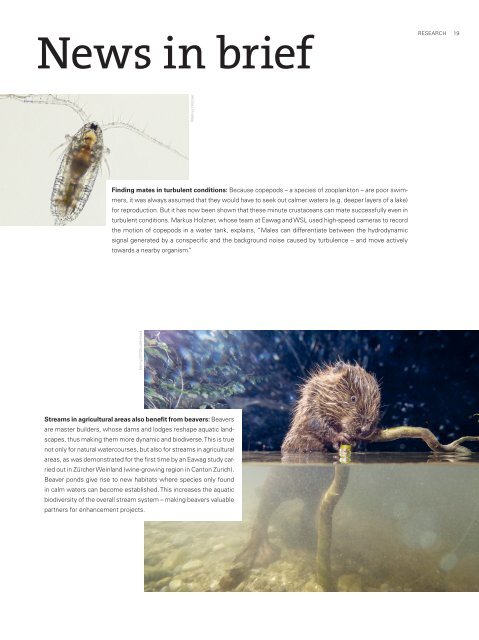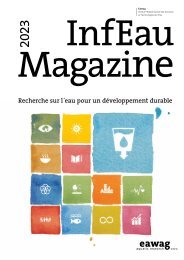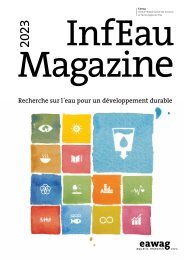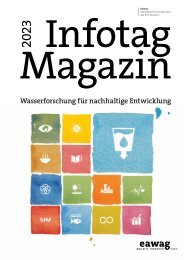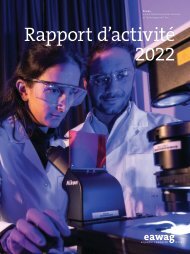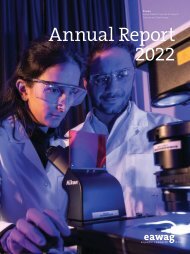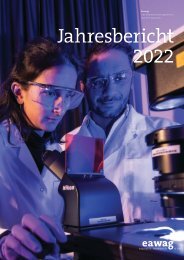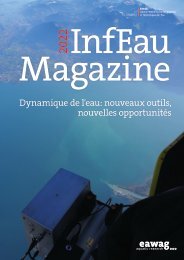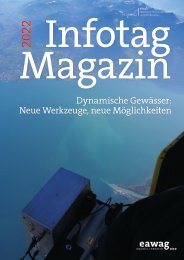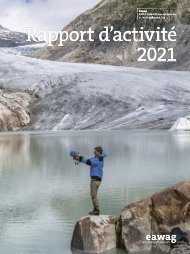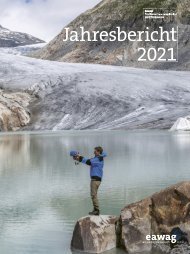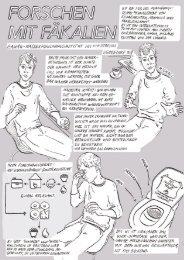Eawag Annual Report 2021
The Annual Report gives a wide-ranging account of current Eawag projects. It is published in English and German, and since 2013 also in French.
The Annual Report gives a wide-ranging account of current Eawag projects. It is published in English and German, and since 2013 also in French.
Create successful ePaper yourself
Turn your PDF publications into a flip-book with our unique Google optimized e-Paper software.
News in brief<br />
RESEARCH<br />
19<br />
Markus Holzner<br />
Finding mates in turbulent conditions: Because copepods – a species of zooplankton – are poor swimmers,<br />
it was always assumed that they would have to seek out calmer waters (e.g. deeper layers of a lake)<br />
for reproduction. But it has now been shown that these minute crustaceans can mate successfully even in<br />
turbulent conditions. Markus Holzner, whose team at <strong>Eawag</strong> and WSL used high-speed cameras to record<br />
the motion of copepods in a water tank, explains, “Males can differentiate between the hydrodynamic<br />
signal generated by a conspecific and the background noise caused by turbulence – and move actively<br />
towards a nearby organism.”<br />
benny337/Shutterstock<br />
Streams in agricultural areas also benefit from beavers: Beavers<br />
are master builders, whose dams and lodges reshape aquatic landscapes,<br />
thus making them more dynamic and biodiverse. This is true<br />
not only for natural watercourses, but also for streams in agricultural<br />
areas, as was demonstrated for the first time by an <strong>Eawag</strong> study carried<br />
out in Zürcher Weinland (wine-growing region in Canton Zurich).<br />
Beaver ponds give rise to new habitats where species only found<br />
in calm waters can become established. This increases the aquatic<br />
biodiversity of the overall stream system – making beavers valuable<br />
partners for enhancement projects.


